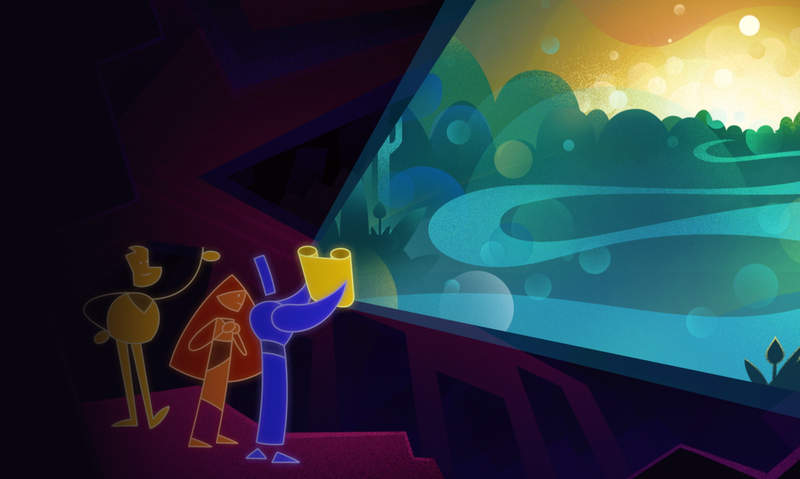Jesus and The Torah
About

We’re exploring the Sermon on the Mount, Jesus’ most well-known collection of teachings. Jesus spent most of his time with the poor and insignificant people of his day, claiming that God’s rescue of the world was beginning through him and them. Through our selfishness and contempt for others, humans have created a violent world far from the one God created. But Jesus taught that God would rescue humans from this world and into one of wholehearted love and respect for God and our neighbors. Jesus described this way of life with the word “righteousness.”
In this guide, you can learn about the theme of righteousness in the Bible and explore related videos, podcast episodes, and more.
Context
Key Themes
- The Old Testament (also referred to as the Torah and Prophets)
- God’s wisdom
- Righteousness
Structure
- Matthew 5:17-20 begins a new section of the Sermon on the Mount, where Jesus teaches about a greater righteousness that fulfills the Torah and Prophets. Jesus makes three unique points that build upon one another:
- First, in verse 17, he clarifies that he has not come to dismantle the Torah and Prophets but rather to fill them full.
- Second, in verses 18-19, he affirms the divine authority of the Hebrew Scriptures and emphasizes the importance of keeping its commands.
- Third, in verse 20, he says that those who want to enter God’s Kingdom must embrace a kind of righteousness that surpasses the scribes and Pharisees.
Living Righteously in a Messy World
In the Bible, a righteous person is someone who consistently does right by God and others. And Jesus said that those who live this way will enter the Kingdom of skies.
10 “Blessed are those who have been persecuted for the sake of righteousness, for theirs is the kingdom of heaven.
But life is messy, and it’s difficult to know what it means to do right by everyone. Consider that Jesus and his audience were Israelites, and these people have long understood a simple and profound answer to how we can know what it means to do right by one another. To do this, we need to learn God’s wisdom. But how do you get God’s wisdom? Jesus said we do this by meditating on the Scriptures—the Torah and Prophets.
The Torah and Prophets
The first five books of the Bible (Genesis, Exodus, Leviticus, Numbers, and Deuteronomy) are sometimes called the Torah. But in Hebrew, torah simply means “teaching,” though it’s often translated in our Bibles as “the Law” (Ps. 19:7).
But these books aren’t merely laws. The Torah is a story about God’s plan to partner with humans in ruling the world. And when humans ruin that partnership through stupidity and violence, God begins a rescue plan—first by choosing and then rescuing the Israelites, and then by inviting them into a covenant relationship. We read about this covenant relationship in the story of Moses on Mount Sinai, where God gives Israel a set of commands.
12 Now the Lord said to Abram,
“Go from your country,
And from your relatives
And from your father’s house,
To the land which I will show you;
2 And I will make you into a great nation,
And I will bless you,
And make your name great;
And you shall be a blessing;
3 And I will bless those who bless you,
And the one who curses you I will curse.
And in you all the families of the earth will be blessed.”
5 Furthermore I have heard the groaning of the sons of Israel, because the Egyptians are holding them in bondage, and I have remembered My covenant. 6 Say, therefore, to the sons of Israel, ‘I am the Lord, and I will bring you out from under the labors of the Egyptians, and I will rescue you from their bondage. I will also redeem you with an outstretched arm, and with great judgments.
3 And Moses went up to God, and the Lord called to him from the mountain, saying, “This is what you shall say to the house of Jacob and tell the sons of Israel: 4 ‘You yourselves have seen what I did to the Egyptians, and how I carried you on eagles’ wings, and brought you to Myself. 5 Now then, if you will indeed obey My voice and keep My covenant, then you shall be My own possession among all the peoples, for all the earth is Mine; 6 and you shall be to Me a kingdom of priests and a holy nation.’ These are the words that you shall speak to the sons of Israel.”
12 Now the Lord said to Moses, “Come up to Me on the mountain and stay there, and I will give you the stone tablets with the Law and the commandments which I have written for their instruction.”
After the Torah come the Prophets, which continue the story of the Hebrew Bible. The prophets wrote about how Israel failed to live by God’s wisdom by violating those commands. But, with beautiful Hebrew poetry, they also proclaimed that this failure would not be the end of the story. God was going to bring his partnership with Israel to its fulfillment. Jesus and other ancient Israelites believed that the Torah and Prophets reveal God’s wisdom to those who meditate on them.
1 Blessed is the person who does not walk in the counsel of the wicked,
Nor stand in the path of sinners,
Nor sit in the seat of scoffers!
2 But his delight is in the Law of the Lord,
And on His Law he meditates day and night.
Finding God’s Wisdom in the Torah and Prophets
As modern followers of Jesus, how do we find God’s wisdom in ancient prophecies, stories, poems, and laws? It’s good to remember that the laws in the Torah were ancient even to Jesus, given centuries earlier when the Israelites could live free on their own land. In Jesus’ time, Israelites were living under Roman occupation, unable to follow many of the laws as originally stated. And on top of that, the 613 laws in the Torah are not a comprehensive rulebook. So there were many teachers of the Torah, called scribes and Pharisees, who would fill in the gaps in the law by discerning God’s wisdom underneath the commands to apply to other areas of life. For instance, the Torah said Israelites should stop working one day a week.
8 “Remember the Sabbath day, to keep it holy. 9 For six days you shall labor and do all your work, 10 but the seventh day is a Sabbath of the Lord your God; on it you shall not do any work, you, or your son, or your daughter, your male slave or your female slave, or your cattle, or your resident who stays with you.
But what counts as work? The Torah doesn’t actually give a full definition. So the scribes would study the Scriptures and provide a comprehensive list that people could live by. They were applying God’s wisdom to everyday life so they could “do righteousness” before God and others.

Jesus’ Claim About the Torah and the Prophets
But Israel’s teachers didn’t always agree with each other, and Jesus would often wade into these debates, agreeing and disagreeing with the scribes and Pharisees. This caused them to worry—maybe Jesus didn’t take the Torah and the Prophets seriously enough. Jesus responds to this concern in the Sermon on the Mount when he says:
17 “Do not presume that I came to abolish the Law or the Prophets; I did not come to abolish, but to fulfill.
What does Jesus coming to “fill the Torah and Prophets full” mean? The Scriptures tell the story of God’s plan to partner with Israel and all humanity in ruling the world. And Jesus claimed that he was taking that story forward, showing humans how to be righteous and live by God’s wisdom. Jesus even said that his vision of righteousness was more in line with God’s wisdom than anyone else in his day.
20 “For I say to you that unless your righteousness far surpasses that of the scribes and Pharisees, you will not enter the kingdom of heaven.
This is a bold claim, but as we’ll see, Jesus is offering a bold and beautiful vision of human life. He’s showing how we can build healthy communities, heal broken relationships, and transform hostility into honor and respect. And in the next section of the sermon, Matthew 5:21-48, Jesus gives six case studies showing how to do that. Each time, he’ll quote a command from the Torah and then explain how it reveals God’s wisdom so that we can learn how to consistently love God and do right by our neighbor.